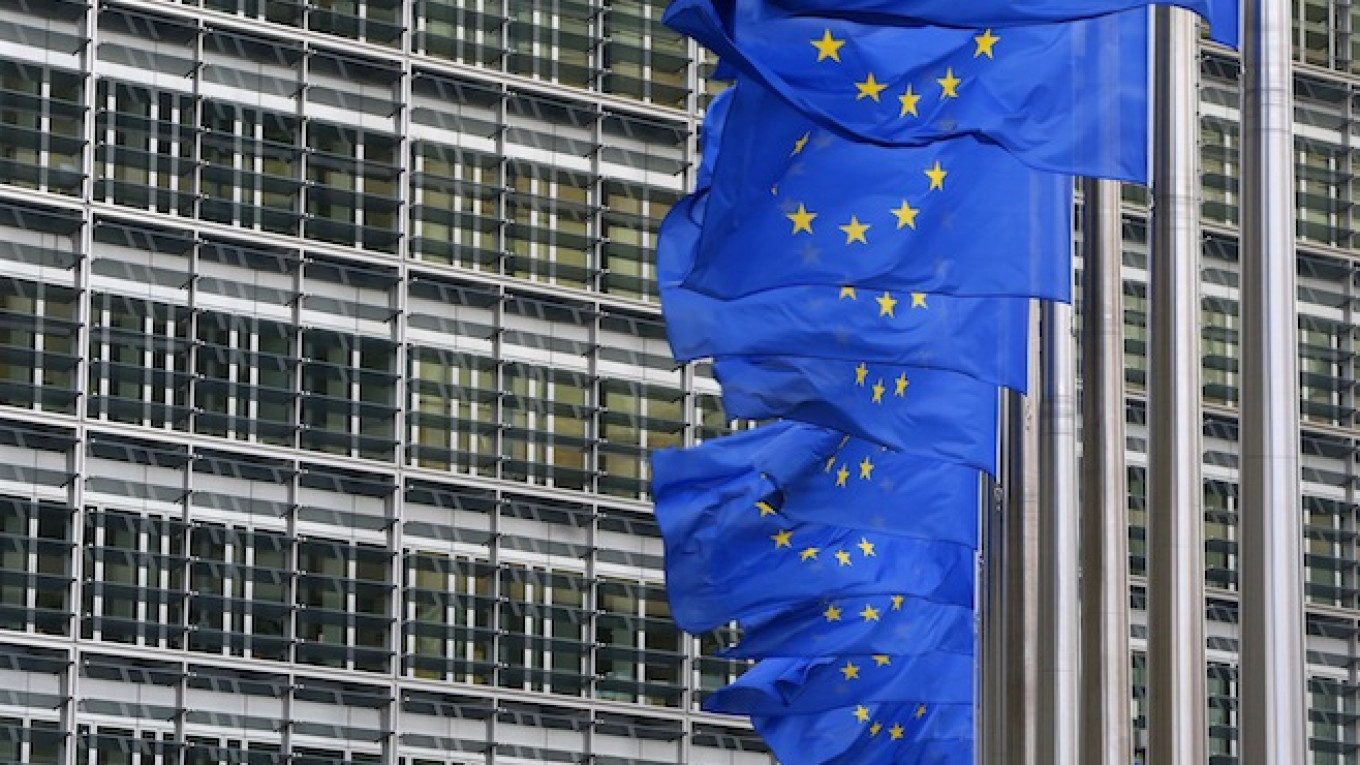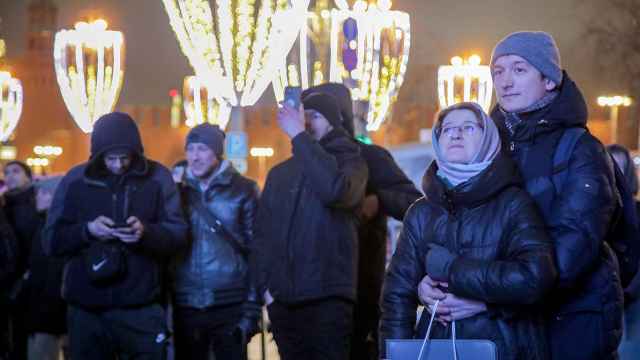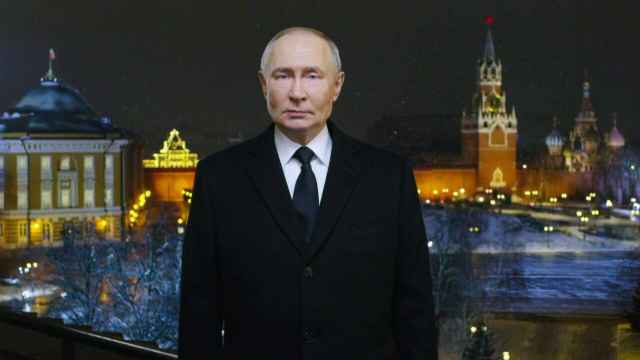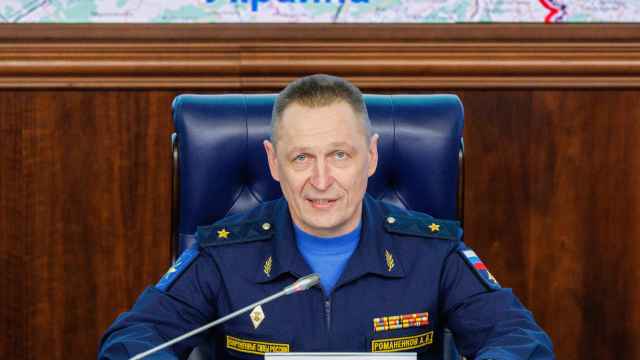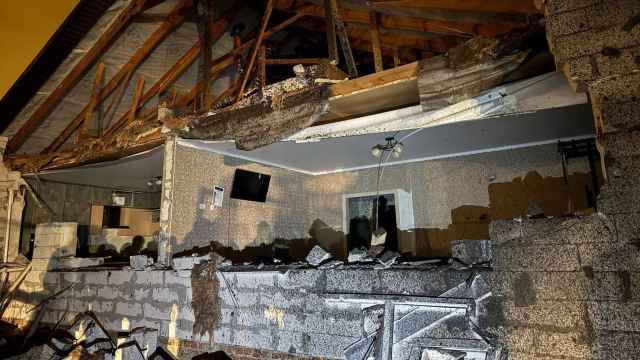EU leaders, under U.S. pressure to take a tougher stance towards Russia over the Ukraine crisis, could give the go-ahead Wednesday to new sanctions but they will fall short of the far-reaching economic measures that Washington wants.
European Union leaders, who will meet in Brussels on Wednesday evening, are likely to give a green light to expanding the list of Ukrainians and Russians targeted with EU asset freezes and visa bans, diplomats said.
Leaders could also agree to amend the criteria for sanctions, allowing the 28-nation bloc to broaden the scope of those targeted with sanctions, and to take some unspecified additional measures, EU diplomats said.
But the measures will not amount to the tough sanctions against the Russian economy that the U.S. and more hawkish members of the EU, including Poland and the Baltic states, have lobbied for.
When EU leaders last met at the end of June, they threatened further sanctions unless pro-Russian rebels in Ukraine took a series of steps to promote peace. Some of the EU's demands, such as releasing OSCE observers, have been met, but others have not.
EU Enlargement Commissioner Stefan Fuele said Tuesday that Russia had not stopped the flow of weapons, equipment and militants across the Ukrainian border and nor had it used its influence to persuade the separatists to lay down their arms. Moscow denies supporting the separatists in eastern Ukraine.
"Tomorrow in Brussels, the heads of state and government will again assess the situation on the ground … and, should it be required, adopt necessary decisions," Fuele told the European Parliament in Strasbourg, France.
Going Further
An EU diplomat indicated the sanctions could go beyond the asset freezes agreed so far, which have been imposed on 72 people and two energy companies in Ukraine's Crimea region, which was annexed by Moscow earlier this year, but declined to give details.
The diplomat cautioned, however, that far-reaching sanctions against the Russian economy were not on the cards.
One option suggested by the European Commission in internal discussions is to scale back or suspend the financial aid Russia benefits from under various EU programs, estimated to be worth some 450 million euros ($611 million) between 2014 and 2020.
Another idea discussed by EU governments is halting or restricting funding for new projects in Russia through the European Investment Bank or the European Bank for Reconstruction and Development, officials have said.
A further possibility suggested by EU officials is to widen the scope of sanctions to include Russian decision-makers they hold responsible for Moscow's policies towards Ukraine.
Yet another option would be to amend the criteria of the EU's sanctions to allow it to target Russian or Ukrainian firms or other organizations that implement policies which undermine Ukraine's territorial integrity, or companies supporting Russia's policy of annexation of Crimea, a diplomat said.
A French diplomatic source said the EU could take new measures without going as far as economic sanctions. "It can be done in the current framework, but it is a matter of reflecting the fact that the conditions set out in June have not been met."
Heavily dependent on Russia for energy, the EU is divided about trade sanctions, with many member states fearing Russian retaliation that could hurt their own economies.
The U.S. has mounted a diplomatic campaign over the last few days to persuade the EU to sign up to tougher sanctions, according to another European diplomat.
That has included a meeting at the White House between U.S. officials and EU ambassadors and calls by U.S. President Barack Obama to some European counterparts, the diplomat said.
A senior Obama administration official said in June that the U.S. had spoken to its EU partners about imposing "scalpel" sanctions on Russia targeted mainly at the financial, defense and high technology sectors.
The European diplomat said "all the signs we are seeing" were that the U.S. was prepared to go it alone with stiffer sanctions if the EU did not sign up to them.
Ukraine is also pushing for the EU to take a hard line against Russia, making new accusations of Russian involvement in the conflict with separatist rebels.
See also:
A Message from The Moscow Times:
Dear readers,
We are facing unprecedented challenges. Russia's Prosecutor General's Office has designated The Moscow Times as an "undesirable" organization, criminalizing our work and putting our staff at risk of prosecution. This follows our earlier unjust labeling as a "foreign agent."
These actions are direct attempts to silence independent journalism in Russia. The authorities claim our work "discredits the decisions of the Russian leadership." We see things differently: we strive to provide accurate, unbiased reporting on Russia.
We, the journalists of The Moscow Times, refuse to be silenced. But to continue our work, we need your help.
Your support, no matter how small, makes a world of difference. If you can, please support us monthly starting from just $2. It's quick to set up, and every contribution makes a significant impact.
By supporting The Moscow Times, you're defending open, independent journalism in the face of repression. Thank you for standing with us.
Remind me later.


